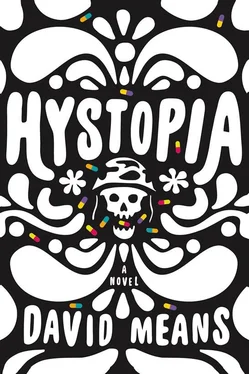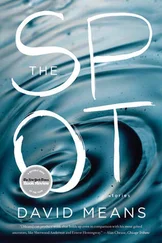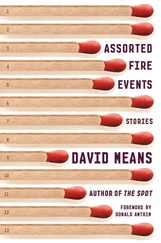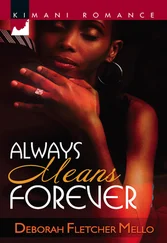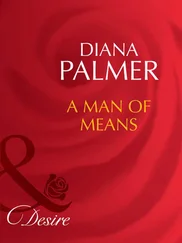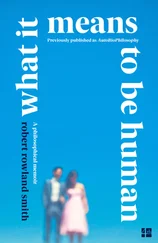On the left side of the house was a tree with pink blossoms in the window light.
The farmhouse, surrounded by spring mud, was absurdly neat, with two stories and dormers and black shutters.
The whole package, he said. They’ve got the whole package here.
He parked the car up the road. Together they walked down the drive, hunching slightly, until they were at the side of the house. He pointed at the tree and she knew what he wanted because he’d made her climb a tree at a rest stop somewhere, an old one with a stone barbecue pit and a pump with a broken handle, just to watch her do it. She’d gone up into the branches, clutching, shaking, until she was caught like a cat, unable to get down, and then he made her jump into his arms.
I’m the bad luck brought home. I’m taking the bad luck I had and foisting it on somebody else.
The tree reached as high as the second-story window, and she got into the middle of it, against the trunk, found a branch and pulled herself up. (Light as a bird. Your bones are hollow, he’d said at the rest stop. You’re high enough to fly high.) In the tree, amid the blossoms, she took a breath. Threading through the floral perfume was the smell of spring grass.
Look forward, move through it, a nurse said, the one with the deeper voice. He looked at her the way you’d want to be looked at, with a calm and steady nonjudgmental gaze. You’ll feel it in there and at some point you’ll take comfort in knowing it’s there, the ball of old memories.
Through the window was an oriental rug and a big easy chair with a man reading a paper and smoking a cigar. Smoke roiled over his head and caught light from a television set. He seemed to be hiding behind the paper from his kids, who were at his feet with their legs crossed, looking forward.
She adjusted her grip and held still, feeling the serenity of the tree, the rustle of leaves in the breeze. From the window, which was open, came the smell of tobacco smoke along with the canned TV laughter and the giggle of the kids. The man lowered his paper and looked at them, tapped his cigar in an ashtray, and then he raised the paper, hiding again.
Rake was whispering, his voice weirdly gentle. Stay up there and look and I’ll give you something to see.
She looked out across the yard. The moon was rising and the light frosted the grass.
When she looked back inside, the man still had his paper up. Rake was in the kitchen by now, she knew. He went into back hallways and kitchens first, and there must’ve been a sound from the kitchen, because the man lowered his paper and tilted his head, and the kids, who were crawl-walking backward toward his knees, giggling again, also turned. For a moment all three of them sat still.
The cat, the man said. He lifted the paper again.
The desire to say something, to shout out a warning, to terminate the scene. Fear, fear, fear was something material. Hold still and you’ll live. Move softly and you’ll survive. Take it easy and you’ll make it, the nurse had said. If you feel yourself falling look down into the fall. Something like that.
The bloodbath that followed seemed distant. She was seeing it and not seeing it. (You saw it all, Rake would say. You might not’ve been looking but you saw it.) Rag dolls acted upon by some distant force. There was an explosion and the two children were dashed to the side, heads opening up while the man’s head snapped with the opening of his chest and the woman, who had been hidden from view, revealed herself in a scream. A moment later there was only the sound of the television set and he was looking up through the window glass, shrugging, and then he went from body to body and did what he had to do — that’s how he put it. I do what I do. You have to know that — making shapes in the carpet with his fingers, leaving messages.
* * *
He got his bag from the trunk and found what he was looking for and made her take it, pushing the canteen to her mouth and making her sip, probing her mouth with his fingers to make sure it was gone, and then there was Kennedy’s voice on the radio, Boston locutions from his repaired larynx, speaking of the nation’s great vision, outlining another one of his projects, reading out figures that suggested victory’s imminence in Vietnam. Rake was slapping the wheel with his palms and talking alongside the voice while she listened. Both worked into each other — she felt Kennedy’s more, she could catch each of his words and see the way he stood with the damaged shoulder stiffer than the good one and his jaw, repaired, listing as he talked of retreat from the DMZ and a fragmented force left behind in the aftermath of retreat and something about a reckoning at hand (maybe Rake doing an imitation) and the conflagration of battle that would soon collapse into peace as the station bounced in off the higher reaches of the ionosphere and then faded into a preacher’s voice, quoting from the book of Isaiah: evil is the torment in the bloodied skies; shy are the defeated; the weak clutch to the stones — and then the Kennedy signal came back in strongly: We’re at the apex of the greatest experiment in our history, he said, and Rake said, Yeah, that’s what we’re doing. We’re heading into a big national experiment, and then he snapped the radio off and opened up the acceleration, faster and faster — as the acuteness of her attention increased, each word available to hear again and again, the road coming in under the headlights (she could feel it, she could feel the road). And then, hours later, a lonely gas station with long, narrow pumps and haloed lamps overhead.
The car stretched out to the chrome ornament, crosshairs aiming into the night.
Then they were passing through Big Rapids again, unnoticed, tearing down the main drag.
What goes around comes around again, Rake said.
He pushed another pill into her mouth and made her swallow and poked his fingers, probing.
When you’re just about to fall into a dream, you get a sense of it being there.
PSYCH CORPS BUILDING, FLINT
Again behind his desk Klein went through the motions of preparing his pipe, first examining it and running his fingernail around inside, studying the curls of tar on his nail and flicking them onto his desk, and then scraping it out with the tool before filling it up and snapping the match. The tobacco had a sweet, rummy odor. It was packed in a tin that opened with a wonderful hiss when he turned the key.
“You got these folks upstairs wanting to smooth things, talking mission this, mission that, and what they want is what we want, except…” He stopped to relight his pipe and leaned back in his chair and puffed. “Those bleeding hearts see the solution as simply a matter of enfolding these wayward types again, even though, clearly, you get a failed enfold like Rake and he’s not going to give you another chance. The fact that his trauma has been amplified makes a cure impossible. All you’d do by enfolding him again would be to get him back to his original trauma state,” Klein said.
“Yes, sir, sir.” Singleton nodded and did his best to look like he was paying attention. Overhead the light fixture continued buzzing. Outside, the wind blew rain against the window, streaming drops along the glass. He leaned back slightly in the chair, kept his hands on his knees, took on the stiffness that Klein expected, hiding his boredom. Klein expected spot-shined boots and clean, pleated trousers and undivided attention all the time, no matter how boring or duplicitous the briefing might be. He took a breath and let the air seep out. The boredom was pure. He relaxed into it and thought of Wendy, the freckles on her breastbone and the tone of her voice, deep alto, resonate.
Читать дальше
